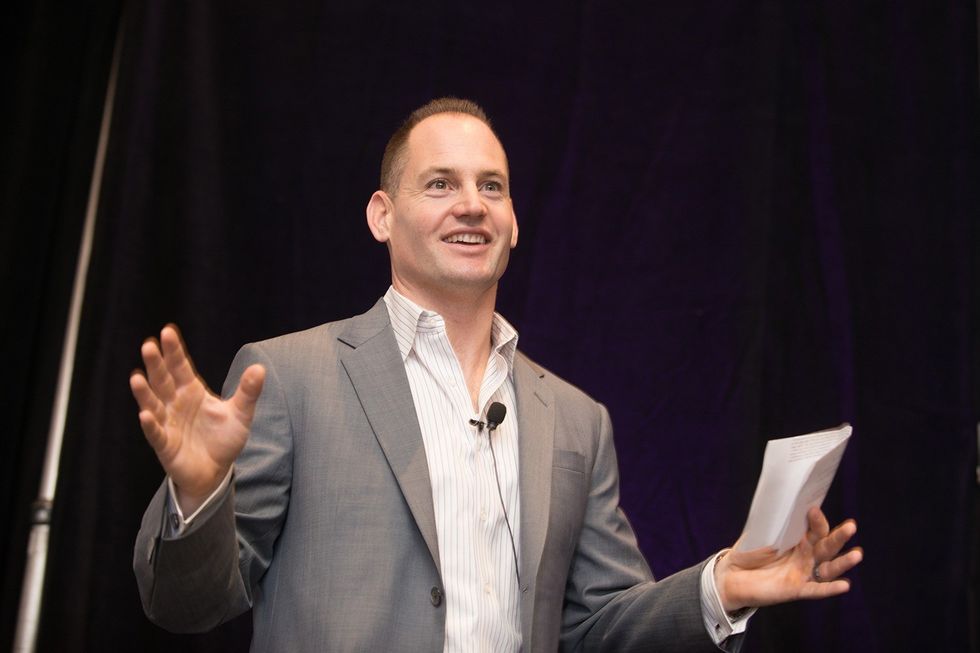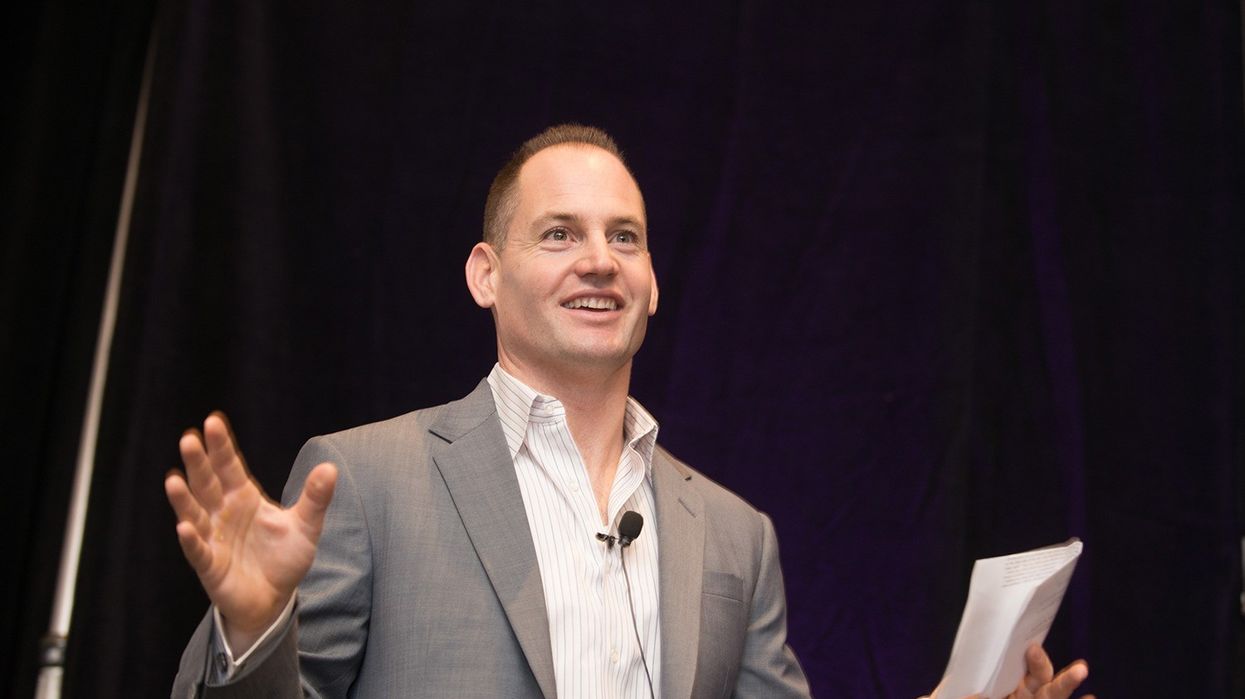
Rock Star Real Estate marches to the beat of its own drum.
Sure, it’s a full-service brokerage, but instead of simply buying and selling homes for clients, Nick Karadza and his brother Tom also provide resources and, support their clients in investing in real estate and creating income for themselves.
Nick bought and renovated his first property at 21, transforming it into a profitable income property a mere four months later. As he and his brother deepened their knowledge through their own investment experiences, more and more people asked the pair to teach them their ways. Soon there were enough people knocking at their door, and a business focused on teaching people how to invest in real estate became viable.
Thusly Rock Star Real Estate Inc. was born, giving people an opportunity to be rock stars in their own lives with the motto, “Your Life, Your Terms.” As the broker of record, Nick Karadza told Storeys what people should know when entering the real estate game and what it takes to rise to the top of the heap.
Tell me a little about Rock Star Real Estate. It’s not run like most real estate brokerages, right?
We’re not the typical real estate brokerage. The company was built primarily working with residential real estate investors. Really bridging the gap between a lot of the education that’s out there and actually taking that education and implementing it on the street. That’s where we come in and we’ve done over $1 billion in investment real estate with investors. Also, the difference with Rock Star is we work as one big team. Most brokerages are every agent for themselves, but we operate as one big team in the brokerage. Instead of calling it Tom and Nick’s real estate show, we call it the singular name — Rock Star. As a brokerage, we don’t actively recruit agents, that’s not our model. We only add when we have room to add to our team.
So your clients, who are buying and selling real estate, are also the people you’re teaching to become real estate investors?
Yes, absolutely. We have 14 different classes our members can get involved in. They get to work with someone on our team to find and profit from properties. We have other benefits as well. For our members we have events that are now attended by at least 600 people outlining different investment strategies and offering different sessions. Our model is different than the typical model, that’s for sure.
So how did you initially get started in presenting real estate this way?
We had (participated in) some of those travelling roadshows that sell real estate as investment education. They promise you the world in two days if you give them $10,000 and stay in a hotel where they show you various investment techniques. I’m not knocking them because they got me thinking in a different way and realizing there’s a lot of opportunity out there that I may not have understood before.
Once we started investing, people thought we were crazy, but once it started going half decently the people who thought we were crazy started wanting us to explain what we were doing. Slowly we taught a few people and then it just morphed into a business. People started asking us for help and then we started looking for ways to recruit more people and grow a real business out of what we were doing.
What do clients most commonly misunderstand when working with a real estate broker to buy and sell their home?
I think they underestimate a lot of the details that if not handled correctly can come back to really haunt them. Agents are seen as a commodity. People think they get paid too much, they don’t do anything and they just sit at home and make millions of dollars. Regardless of whether some aspects of what they’re getting at are true, (agents) see people get themselves into a lot of sticky situations by trying to do things by themselves without the proper knowledge. I’m not saying that people who don’t have a real estate license can’t represent themselves in a real estate transaction. I think some people absolutely can. However, there’s also a percentage of people that in no way, shape or form should be doing that because they could get themselves into a bad situation that can be costly.
What do you think it takes to become a top producer in the real estate field?
I think, like anything else, you’ve got to run it like a business. It’s got to be a true business and you have to understand all the different aspects of it. You have to understand how to fund it, you have to understand sales, you have to understand customer service and you have to understand administration.
If you weren’t a real estate agent, what would you be?
I’d probably be a gym rat. I like doing anything outdoors, anything physical and I’d do something involved in that. I think it would be very difficult to go back to the corporate, nine-to-five lifestyle.
What are your impressions of the Toronto real estate market and where it’s headed?
If you take Toronto and you look up what has kind of happened in different areas, you’ll see that areas like Scarborough, which used to be a word people would cringe at when you told them you lived there, has now become a place a lot of people are moving to because of affordability. Once people start moving to an area, that’s when the area starts to go through a little bit of redevelopment and a little bit of further growth, which is what you’re seeing in different areas on the east side of the city — even King East is going through a very similar cycle as well. What happens in these areas is that redevelopment happens, the price-per-square footage goes up and people say, “That place is too expensive; I can’t move there, where can I move?” and then they look at a place like King East, discover it’s cheaper, move there and the cycle begins again. I think it’s tough, but people need to be forward-looking when it comes to neighbourhoods because if everyone is talking about an area, it’s too late – the trend makers have already moved onto,.
What advice do you have for buyers in the competitive real estate market in Toronto?
Don’t get emotional about it either way and when I say either way, I mean don’t get emotional about it where you’re just bidding crazy, crazy, crazy. It doesn’t make sense sometimes. But also don’t get emotional about it to the point where you’re not going to spend that extra $5,000 because if this is the property that you like and your family is going to live in, $5,000 is not likely to make or break you when you look at the purchase a number of years from now, especially given where property values are right now. Some people say, “It was listed at $800,000, so why should I have to pay $825,000?” You know what? At the end of the day, if this is the right home for you, get the property that’s right for you without getting too emotional one way or another. I understand it’s a difficult environment, but it’s the way things go some times. That being said, I’m not saying spend an extra few thousand dollars on any property, I’m saying spend it on the right property or you may regret it later.
What do you love about what you do and if you were a more traditional real estate agent, would you love it as much?
I don’t think if I was a traditional real estate agent, I would love it as much, no. This has become pretty clear to me. The thing I like most about what we do is, from the feedback we get from people and the pictures they send us, we’ve been told that we’re really making a big difference in people’s lives. They’re doing it; we’re just the facilitators. But if we’re able to help people do a few things in their lives that allow them a certain amount of flexibility, then it makes this all worthwhile. That’s where the motto, ‘Your life, your terms’ comes in because ultimately our goal is to give people the tools to live life on their terms and real estate, from an investment perspective, is one of those.
We’ve been given credit for far too much, but now there are some people who are now in a financial position to support their parents, where they wouldn’t have been able to in the past. We also have clients we work with who can now afford to travel and go to different parts of the world for four months at a time with the financial gains from their investments. Something, they tell us, without that money they wouldn’t be able to do. It’s that aspect of things and our impact on the flexibility and freedom that people have in their lives that really makes it worthwhile for us.





















